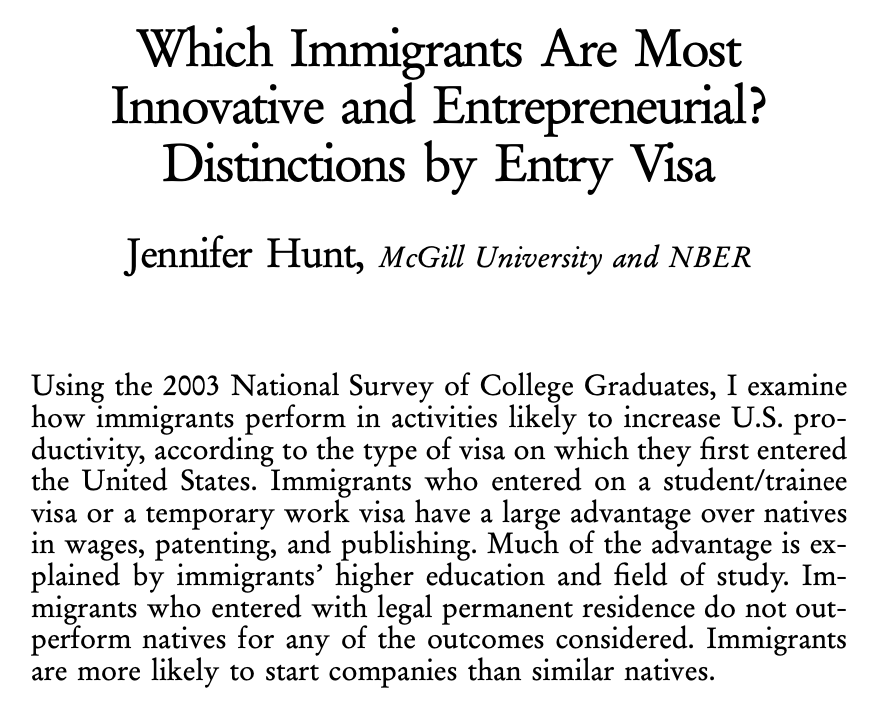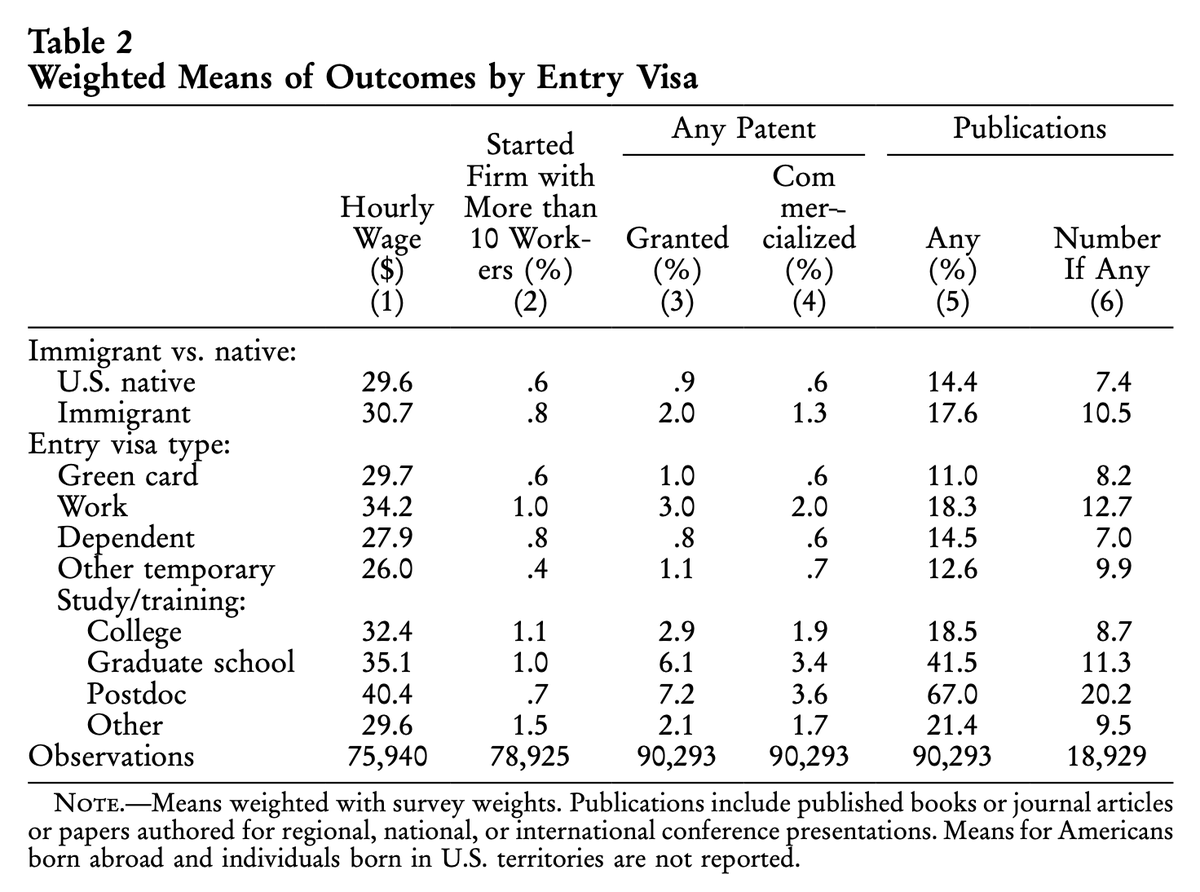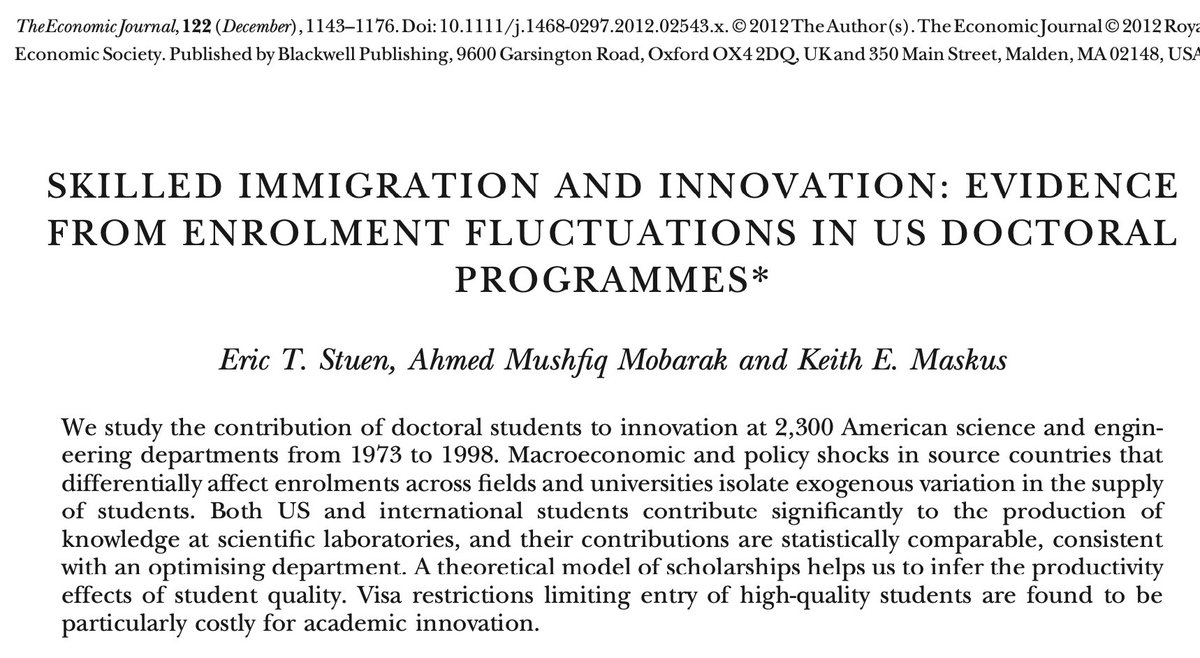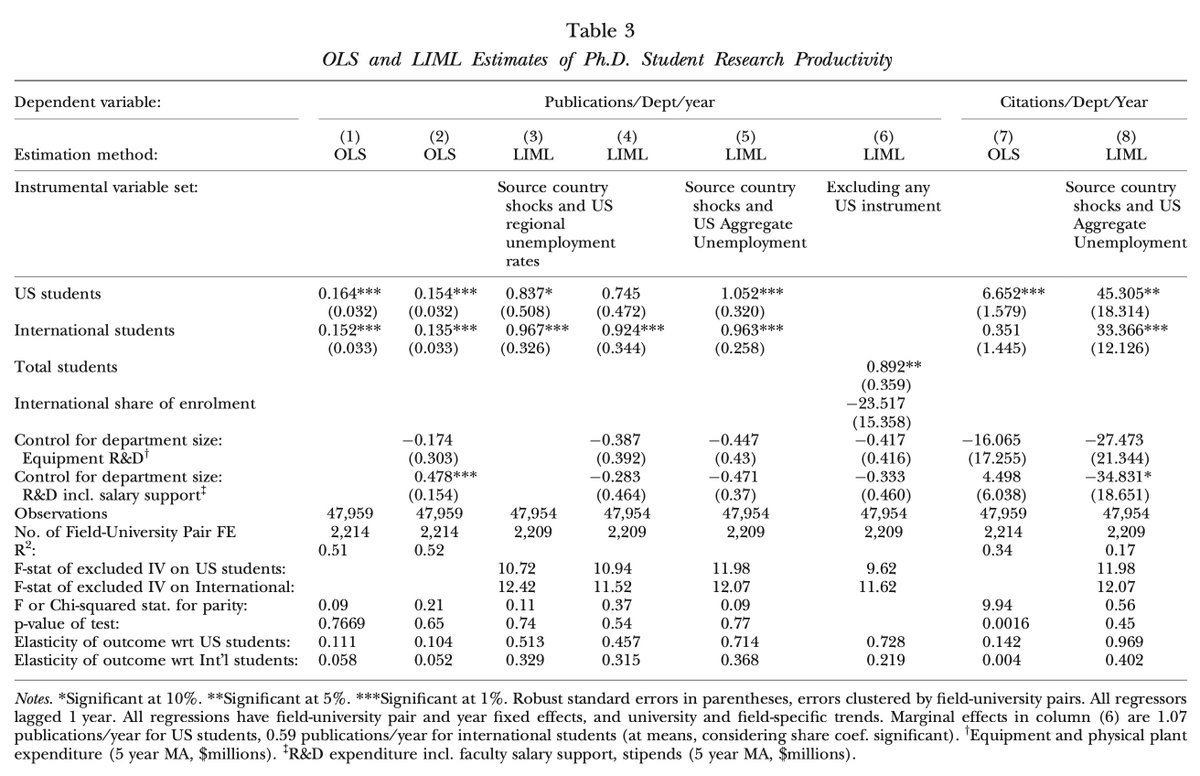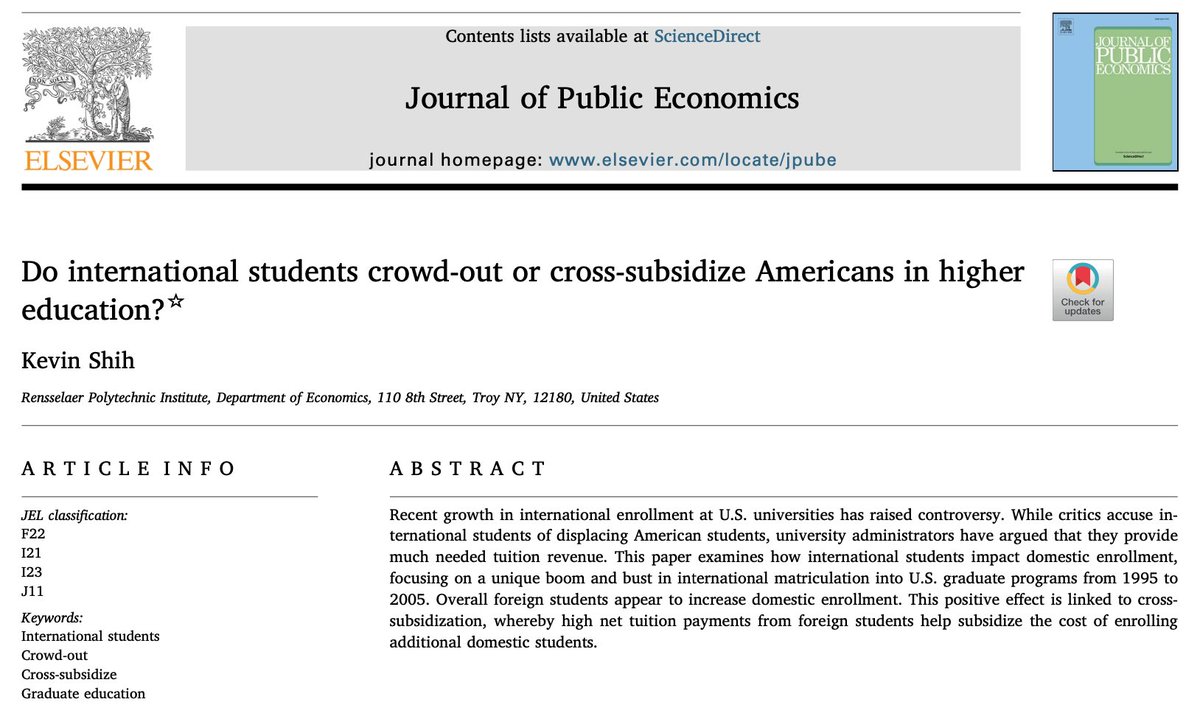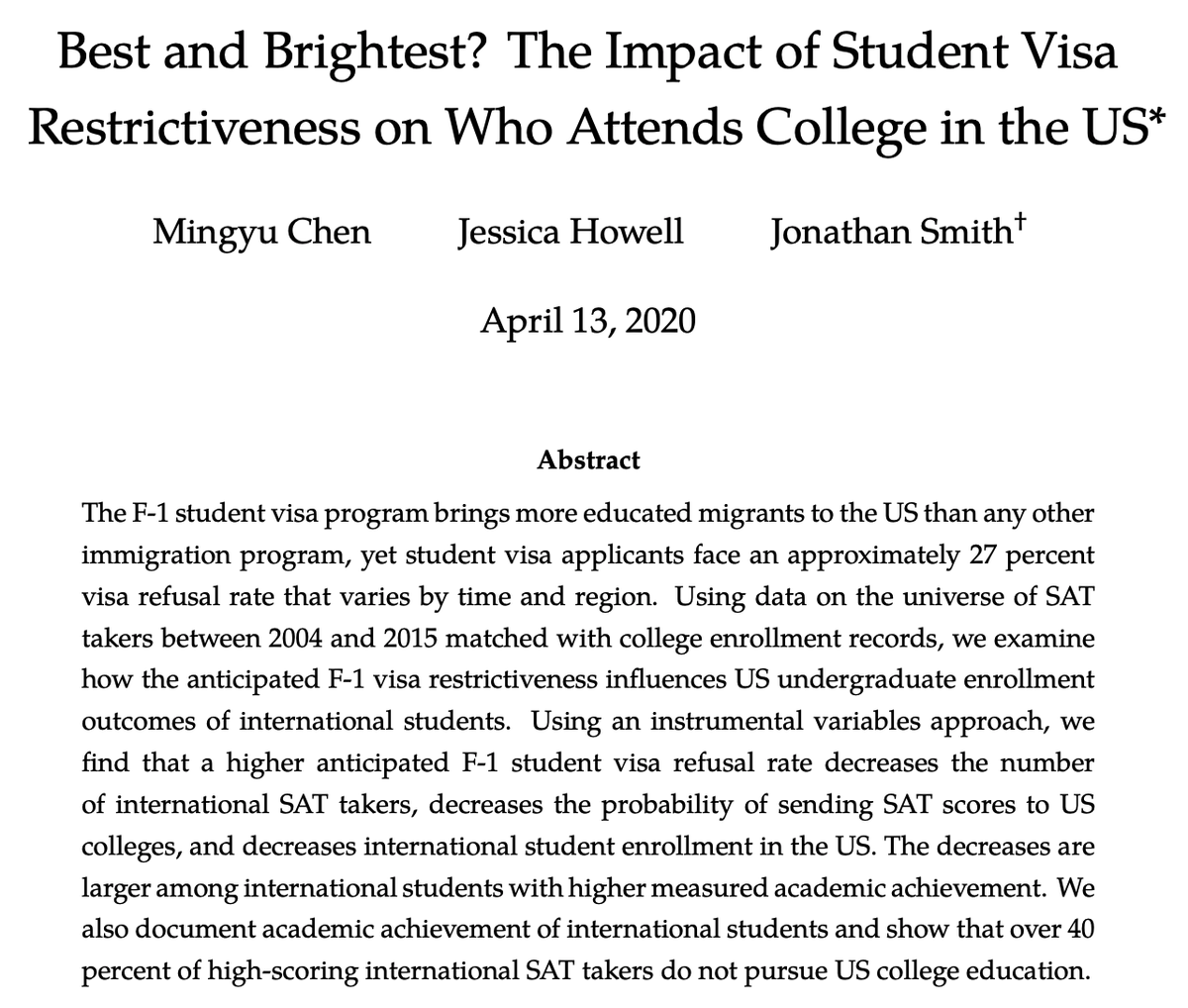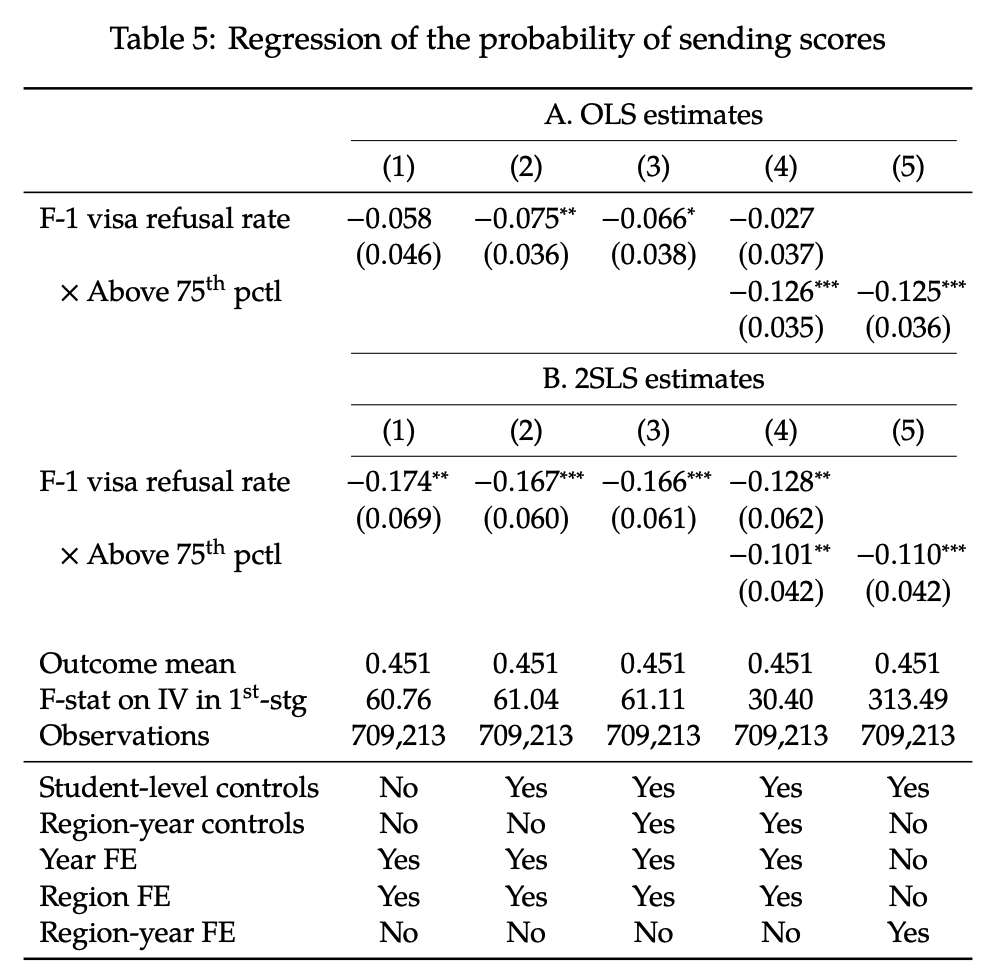The US Administration will revoke student visas for a large share of the foreign students at US universities starting next month.
This will substantially harm innovation, competitiveness, and job creation by US firms. Here I review some of the key research —>
This will substantially harm innovation, competitiveness, and job creation by US firms. Here I review some of the key research —>
Jennifer Hunt of @RutgersU examines the @NSF National Survey of College Graduates to compare entrepreneurship, patenting, and scientific productivity by natives to people who arrived on a student visa.
In the @SOLE_Labor_Econ Journal of Labor Econ—> https://doi.org/10.1086/659409
In the @SOLE_Labor_Econ Journal of Labor Econ—> https://doi.org/10.1086/659409
Student visa recipients are about twice as likely as natives to start a firm with more than 10 workers. They are 3–6 times as likely as natives to file a commercialized patent. Either of those activities create economic activity and native employment.
Is that a coincidence, e.g. better schools just attract foreign students?
No. Stuen, @mushfiq_econ, & Maskus examine innovation in Science & Engineering departments when a force majeure—like exit restrictions abroad—choke of student flows.
In @EJ_RES —> https://doi.org/10.1111/j.1468-0297.2012.02543.x
No. Stuen, @mushfiq_econ, & Maskus examine innovation in Science & Engineering departments when a force majeure—like exit restrictions abroad—choke of student flows.
In @EJ_RES —> https://doi.org/10.1111/j.1468-0297.2012.02543.x
They offer a nice non-technical summary of the work here —> https://voxeu.org/article/international-graduate-students-are-critical-scientific-discovery
The key regressions are these: Forces majeures that restrict foreign student entry choke off STEM innovation at US universities.
The key regressions are these: Forces majeures that restrict foreign student entry choke off STEM innovation at US universities.
But wait, do foreign students simply crowd out native students?
No. @econoshih of @QC_News uses @ipeds_nces data to measure the effect of foreign student enrollment on native enrollment, using the post-9/11 collapse in foreign students.
In @JPubEcon —> http://dx.doi.org/10.1016/j.jpubeco.2017.10.003
No. @econoshih of @QC_News uses @ipeds_nces data to measure the effect of foreign student enrollment on native enrollment, using the post-9/11 collapse in foreign students.
In @JPubEcon —> http://dx.doi.org/10.1016/j.jpubeco.2017.10.003
When a force majeure raises foreign student enrollment, that causes *more* native enrollment. When a force majeure reduces foreign enrollment, it reduces native enrollment.
Part of the reason: "tuition payments from foreign students help subsidize…additional domestic students."
Part of the reason: "tuition payments from foreign students help subsidize…additional domestic students."
There is an authoritative review of this literature by Kerr, @william_r_kerr, and Lincoln, here —> https://www.hbs.edu/faculty/Publication%20Files/Kerr_Kerr_Lincoln_IPE15_4355bc0c-1e2b-429c-b217-eabba4b47a99.pdf
Most notably: There is no evidence in the literature at all finding positive economic or public health effects of deporting foreign students. None.
Most notably: There is no evidence in the literature at all finding positive economic or public health effects of deporting foreign students. None.
Some have pointed to the technicality that the Administration says it will not revoke those students’ visas *provided they leave the country*.
A visa *is* permission to stay in a country. Forcing people out whether they do or do not have a visa equates to revoking their visa.
A visa *is* permission to stay in a country. Forcing people out whether they do or do not have a visa equates to revoking their visa.
More evidence: When the US cuts the *number* of int'l students by denying visas, how does this shape their *ability* level?
@mingyuchen_econ, Howell, and @jonisaacsmith study this using rich data on int'l SAT scores, in this @Princeton paper—> https://dataspace.princeton.edu/jspui/handle/88435/dsp01c534fr83n
@mingyuchen_econ, Howell, and @jonisaacsmith study this using rich data on int'l SAT scores, in this @Princeton paper—> https://dataspace.princeton.edu/jspui/handle/88435/dsp01c534fr83n
They ingeniously use only the portion of variance in student visa refusals that is explained by refusals in visitor visas—not plausibly driven by students.
A 10 pct. point rise in student visa refusals—> 2 pct. point fall in country's share of SAT takers above 75ᵗʰ percentile.
A 10 pct. point rise in student visa refusals—> 2 pct. point fall in country's share of SAT takers above 75ᵗʰ percentile.
A reasonable interpretation of these findings is that the best international students have options. When the US demonstrates that it does not want them, the best students are relatively more likely to explore options in other countries or at home.

 Read on Twitter
Read on Twitter